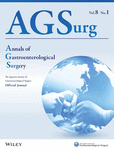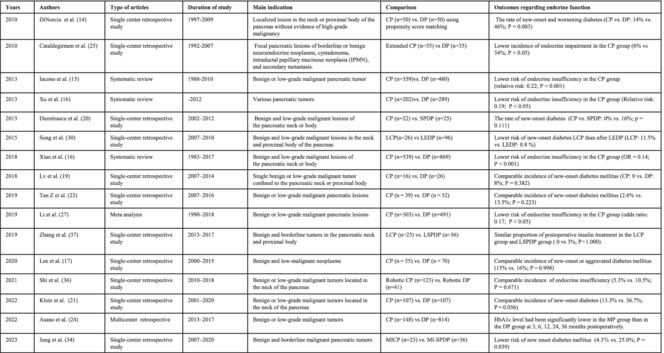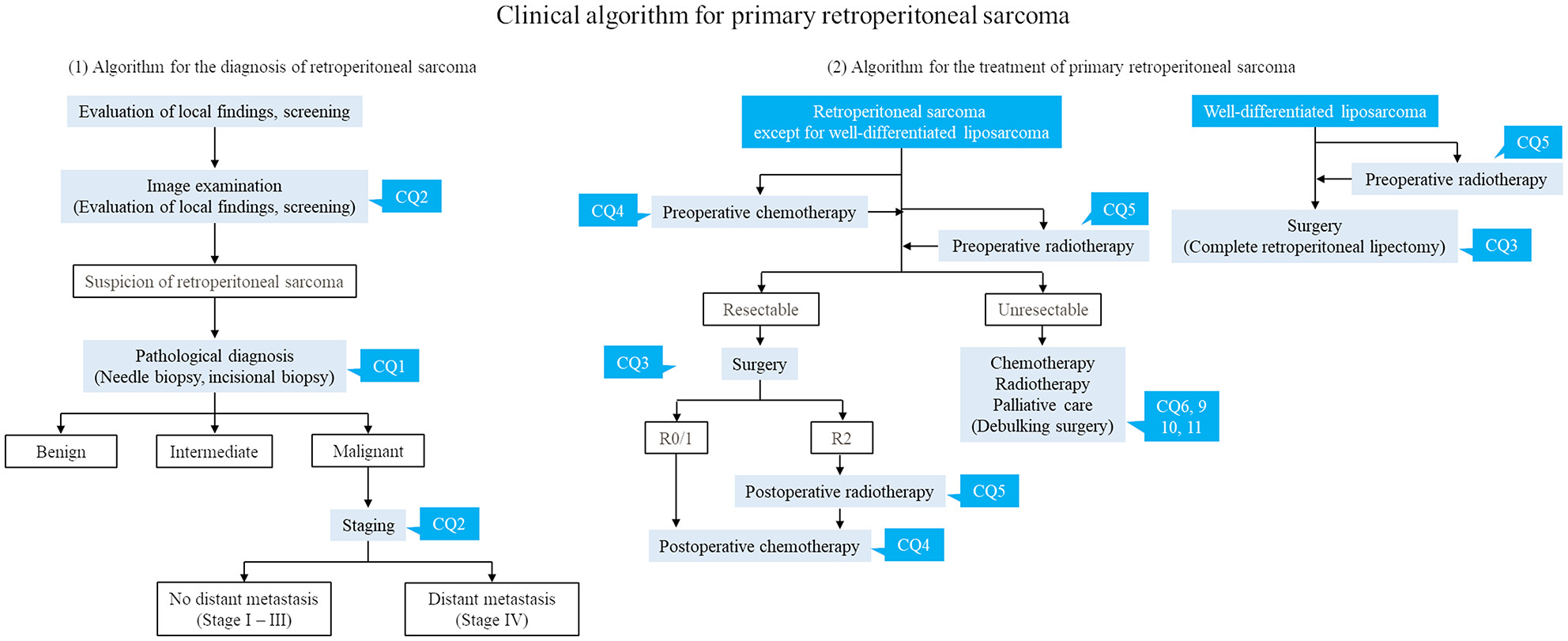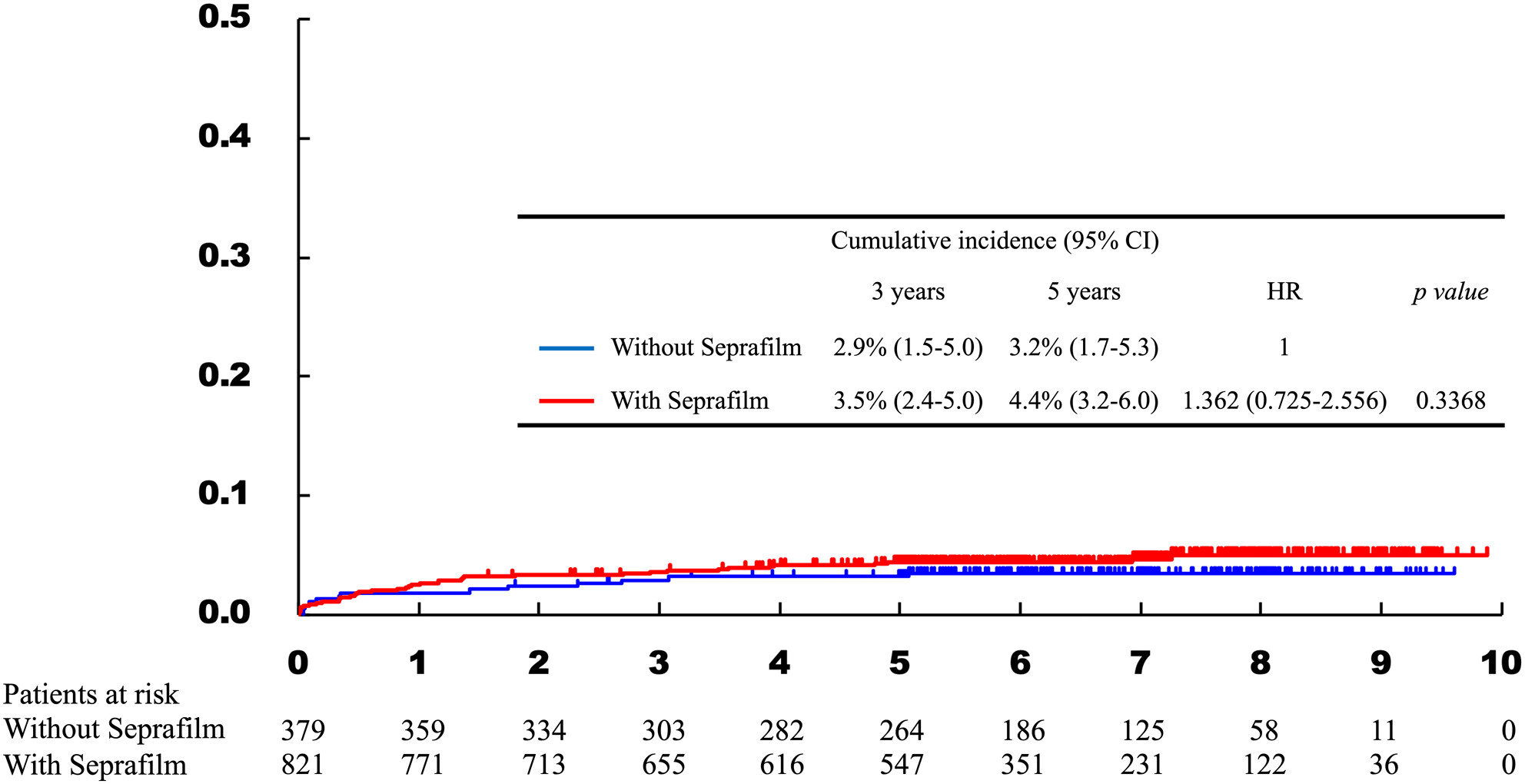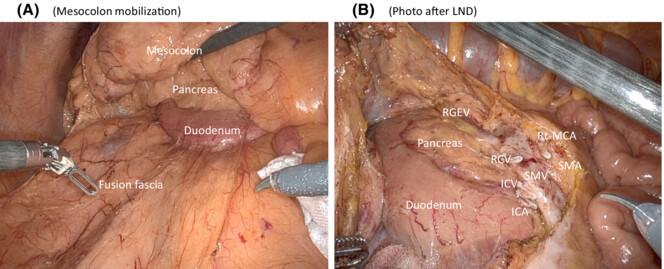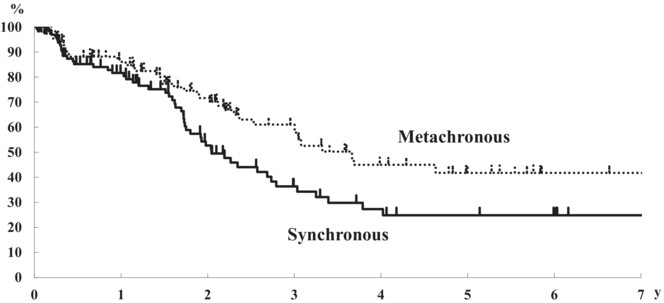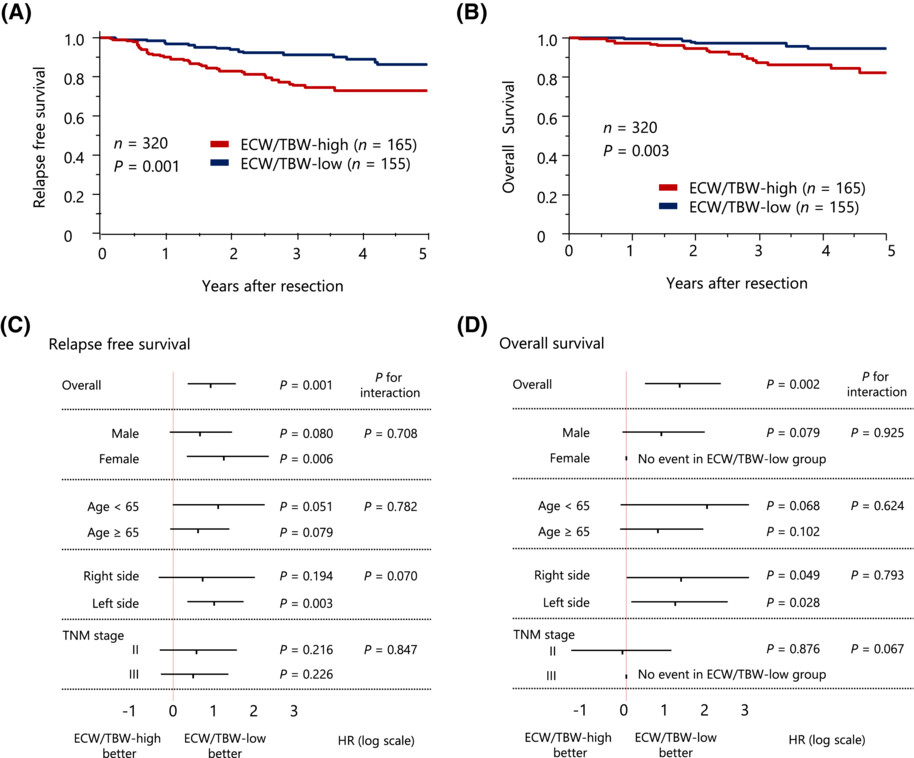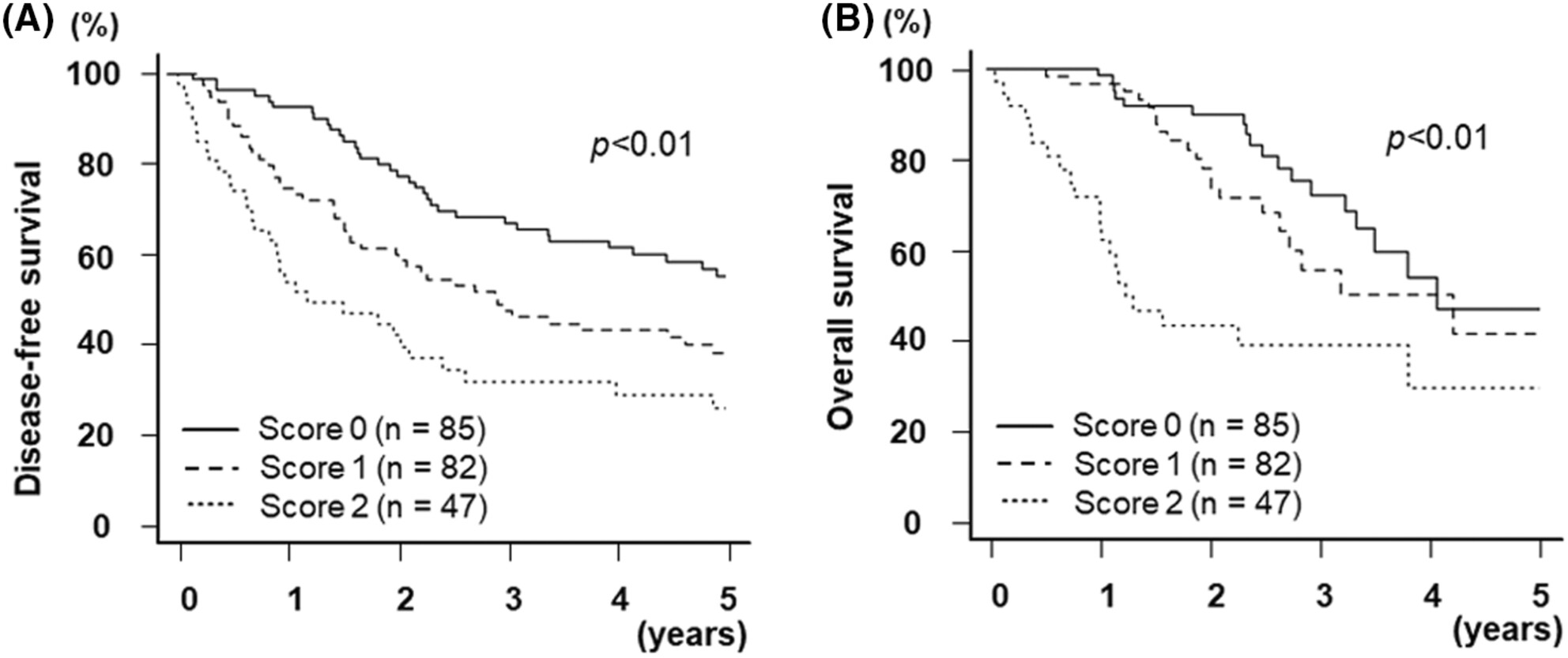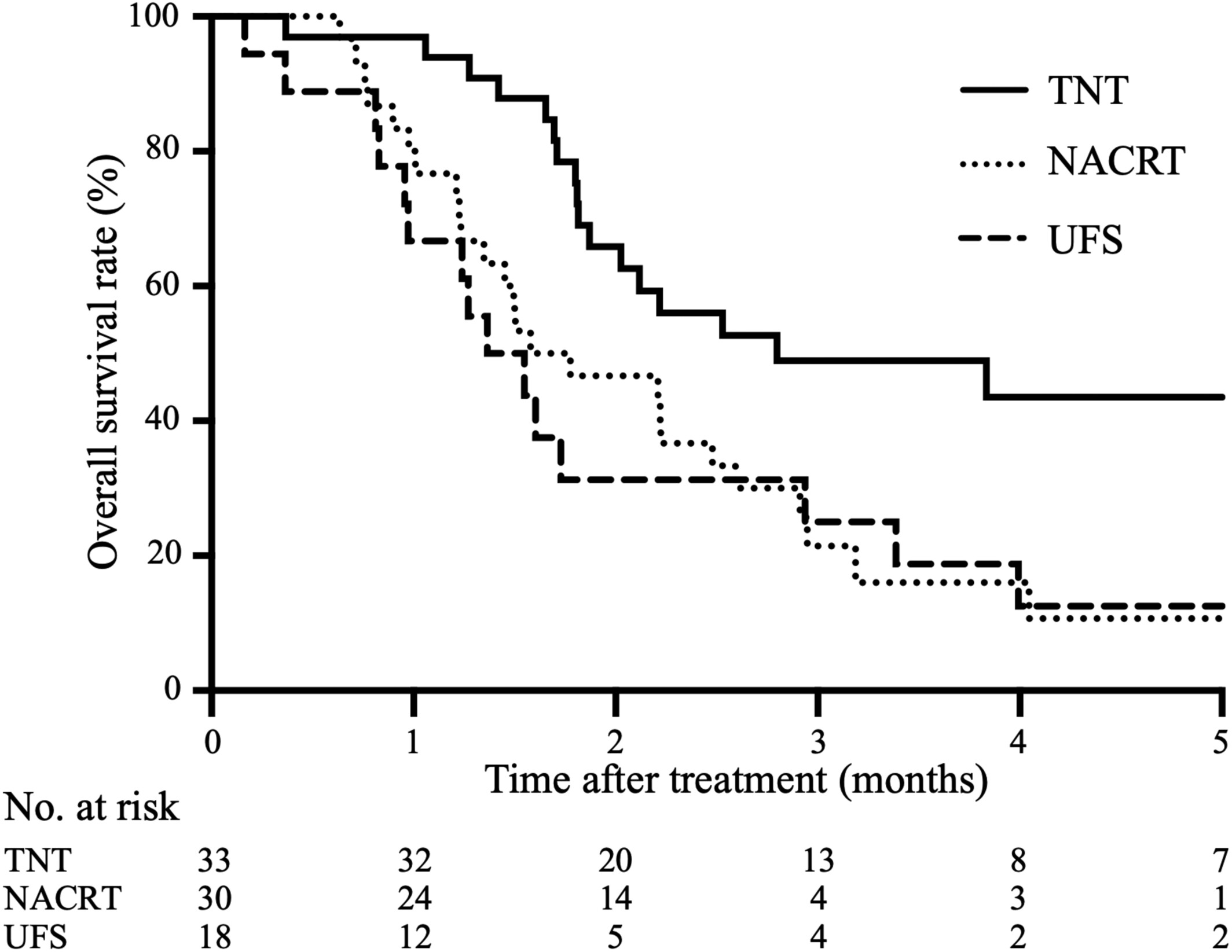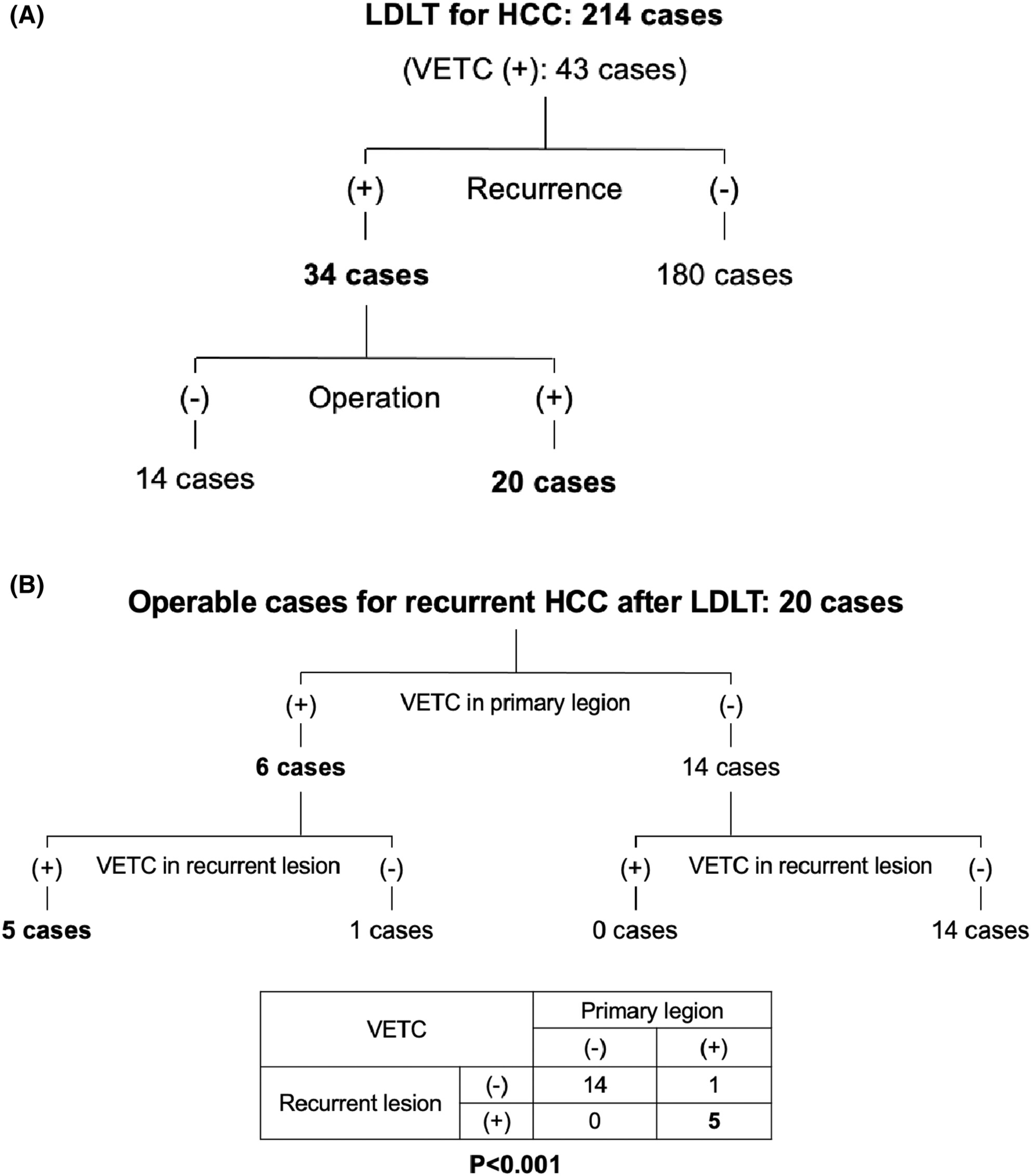Journal list menu
Export Citations
Download PDFs
ISSUE INFORMATION
EDITORIALS
REVIEW ARTICLES
Recent trends in organ-preserving pancreatectomy: Its problems and clinical advantages compared with other standard pancreatectomies
- Pages: 8-20
- First Published: 08 October 2023
Clinical characteristics and management of primary retroperitoneal sarcoma: A literature review
- Pages: 21-29
- First Published: 16 November 2023
ORIGINAL ARTICLES
Association between the antiadhesion membrane and small bowel obstruction after open gastrectomy: A supplemental analysis of the randomized controlled JCOG1001 trial
- Pages: 30-39
- First Published: 27 July 2023
Comparison of the effects of open and laparoscopic approach on body composition in gastrectomy for gastric cancer: A propensity score-matched study
- Pages: 40-50
- First Published: 02 August 2023
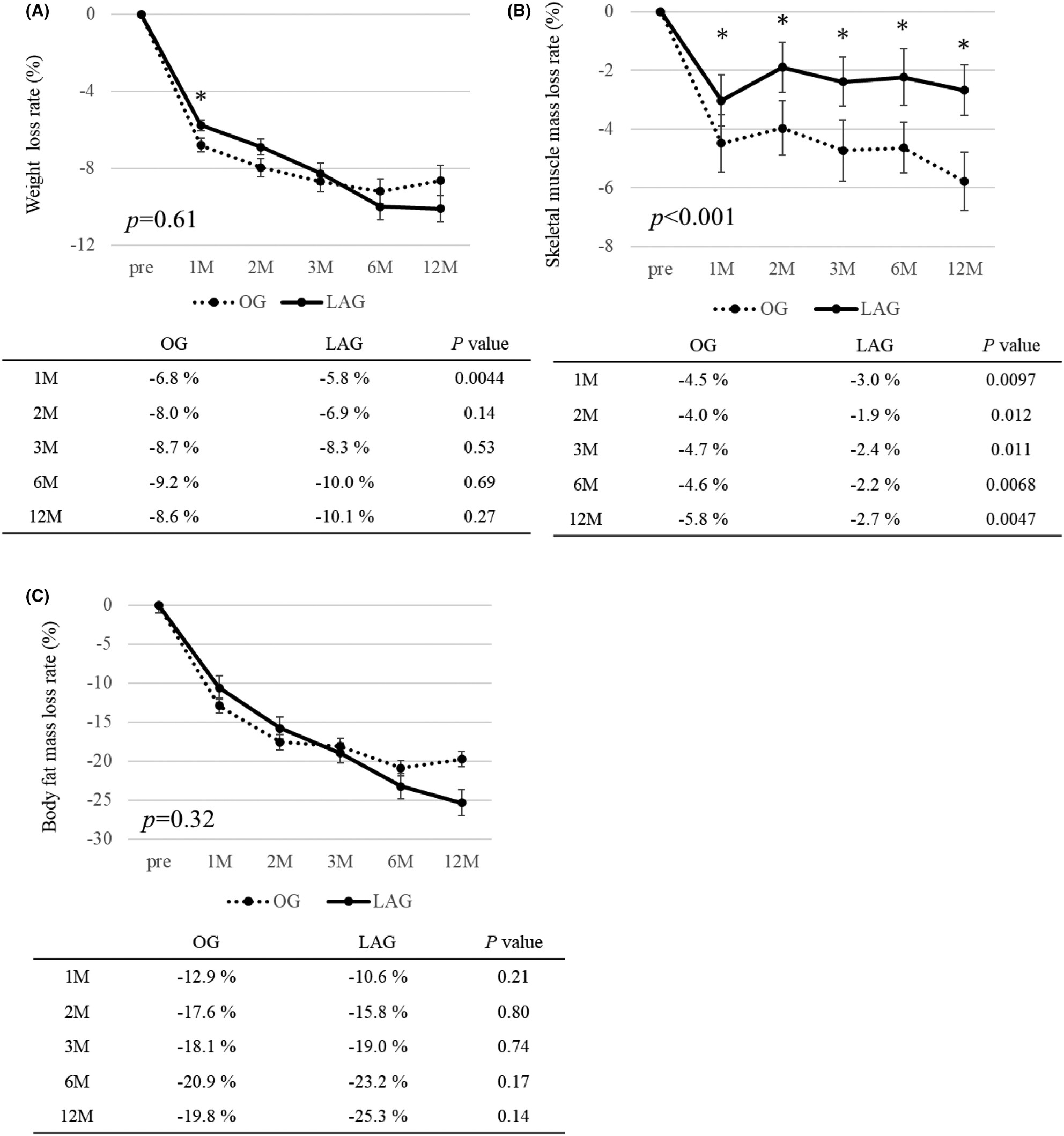
This study performed a propensity score matching analysis using cases from a large-scale, multicenter, phase III randomized controlled trial concerning oral nutritional supplements after gastrectomy and analyzed both the whole cohort and matched cohort. Measurements of body composition and handgrip strength were performed after gastrectomy. Loss of skeletal muscle mass was significantly lesser in the laparoscopic gastrectomy group than in the open gastrectomy group in both cohorts.
Efficacy of lymph node dissection for duodenal cancer according to the lymph node station
- Pages: 51-59
- First Published: 17 August 2023
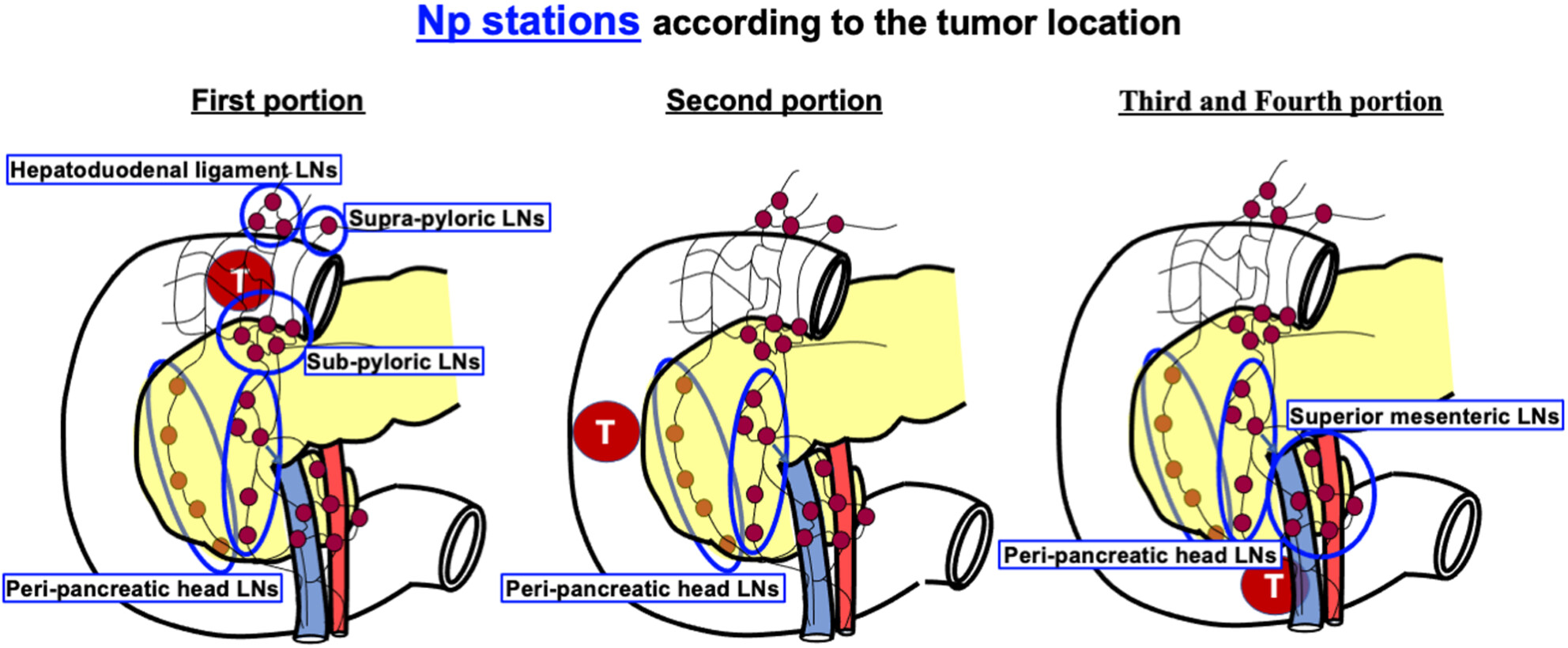
This study retrospectively analyzed duodenal cancer (DC) patients who underwent surgical resection, categorizing lymph node (LN) stations into Np (upstream) and Nd (other) based on lymphatic flow. It was found that patients with lymph node metastasis (LNM) in the Nd stations had significantly worse survival rates than those with LNM only in the Np stations, with multivariate analysis identifying LNM in Nd stations as an independent prognostic factor. The study concluded that while dissection of Np stations led to acceptable survival, LNM of Nd stations resulted in poor survival, potentially indicating advanced systemic disease progression in DC patients.
Long-term treatment outcomes in gastric cancer with oligometastasis
- Pages: 60-70
- First Published: 31 August 2023
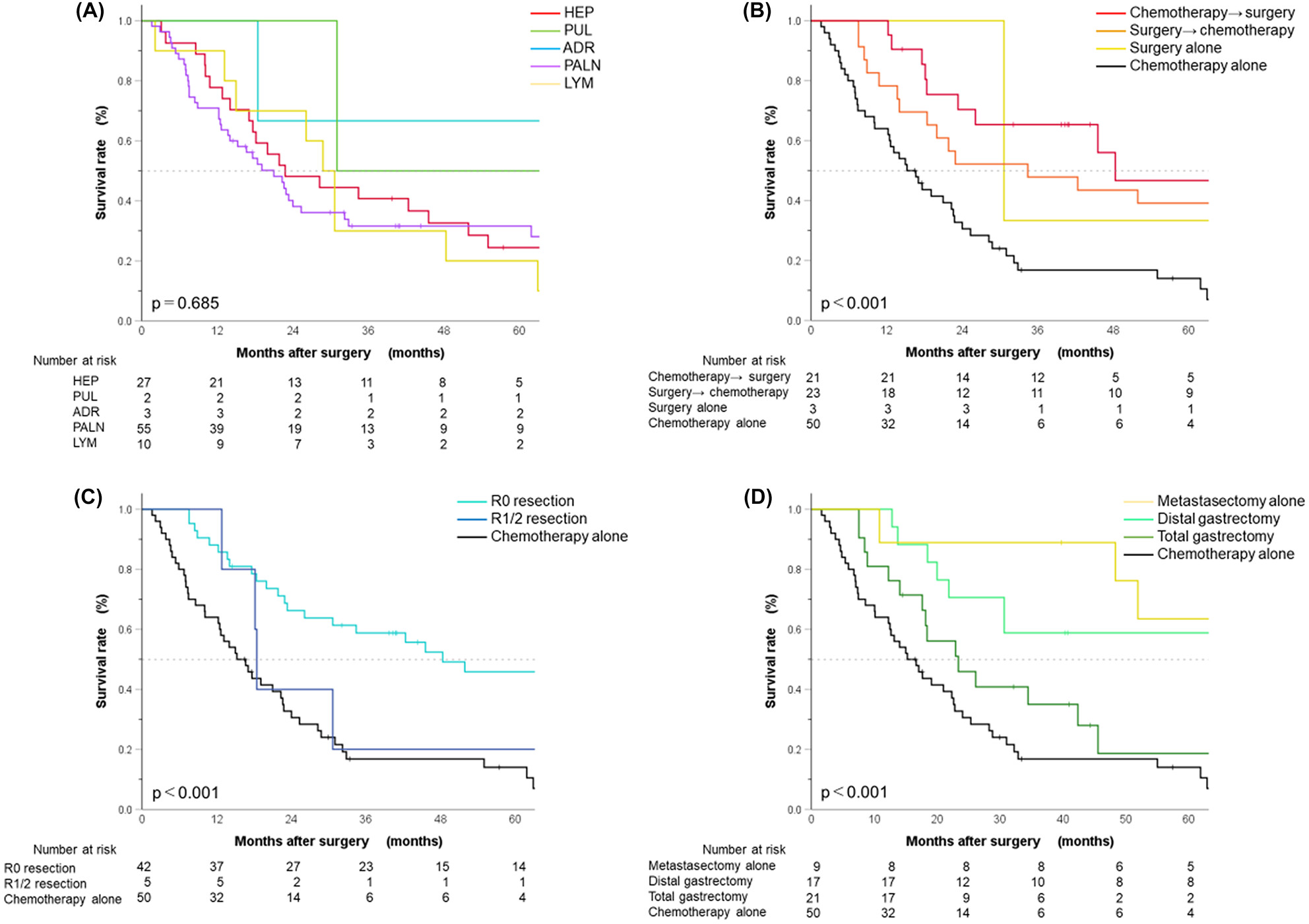
The present study investigated he clinical course and long-term outcomes of 97 gastric cancer patients with oligometastasis. The patients with oligometastasis had a favorable prognosis, with a median survival time of 22.8 months and a 5-year overall survival rate of 28.4%. On multivariate analysis, chemotherapy for the initial treatment, distal gastrectomy and/or metastasectomy, and R0 resection were identified as independent, positive factors of overall survival.
Neoadjuvant S-1 and oxaliplatin plus bevacizumab therapy for high-risk locally advanced rectal cancer: A prospective multicenter phase II study
- Pages: 71-79
- First Published: 20 July 2023
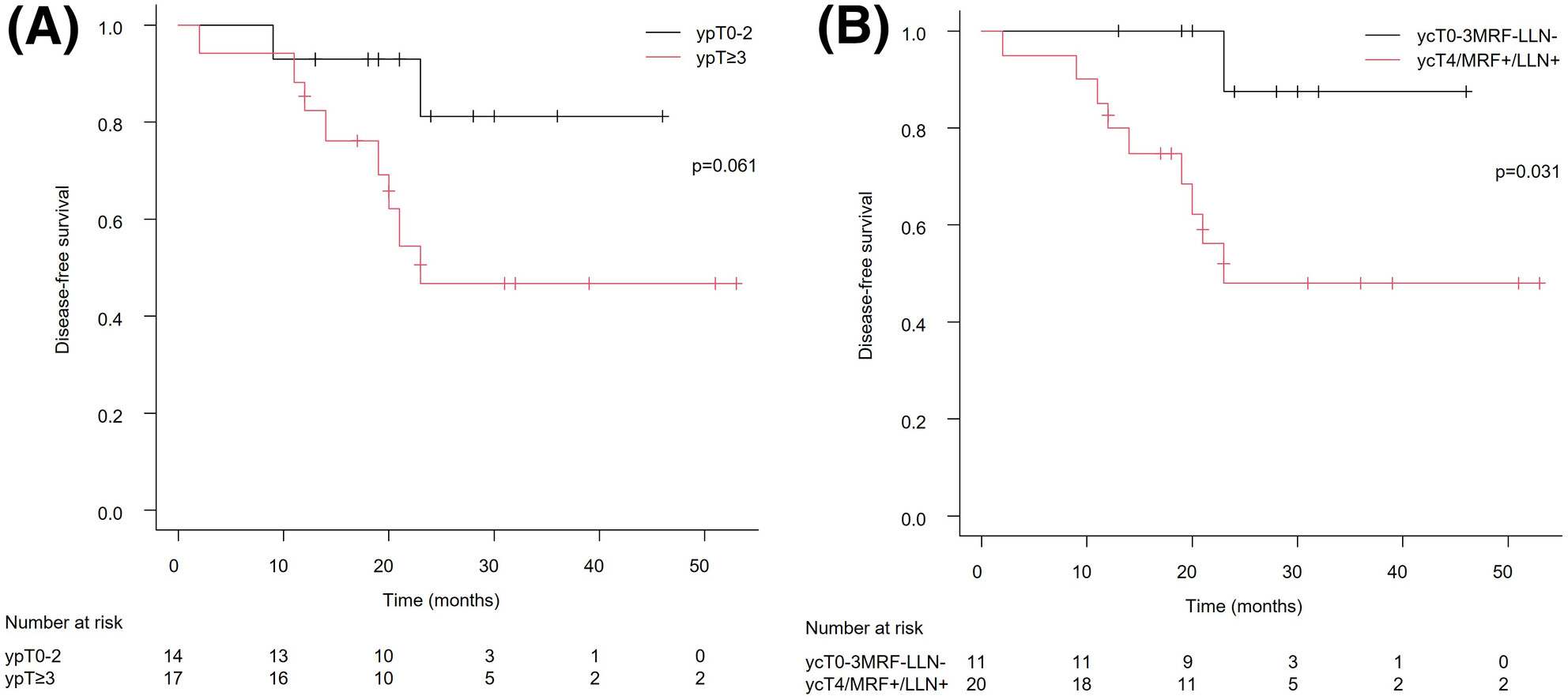
We report the short/mid-term results of surgery for high-risk locally advanced rectal cancer (LARC) after neoadjuvant chemotherapy (NAC, four courses of S-1 + oxaliplatin+ bevacizumab) without radiotherapy with the primary aim of ypT0-2. NAC yielded a clinically significant effect in about half of high-risk LARC patients.
Surgical outcomes of a prospective, phase 2 trial of robotic surgery for resectable right-sided colon cancer (the ROBOCOLO trial)
- Pages: 80-87
- First Published: 19 July 2023
Cytoreductive surgery for synchronous and metachronous colorectal peritoneal dissemination: Japanese P classification and peritoneal cancer index
- Pages: 88-97
- First Published: 19 July 2023
Extracellular water to total body water ratio, a novel predictor of recurrence in patients with colorectal cancer
- Pages: 98-106
- First Published: 08 August 2023
Impact of COVID-19 pandemic on short-term outcomes after low anterior resection in patients with rectal cancer: Analysis of data from the Japanese National Clinical Database
- Pages: 107-113
- First Published: 16 August 2023
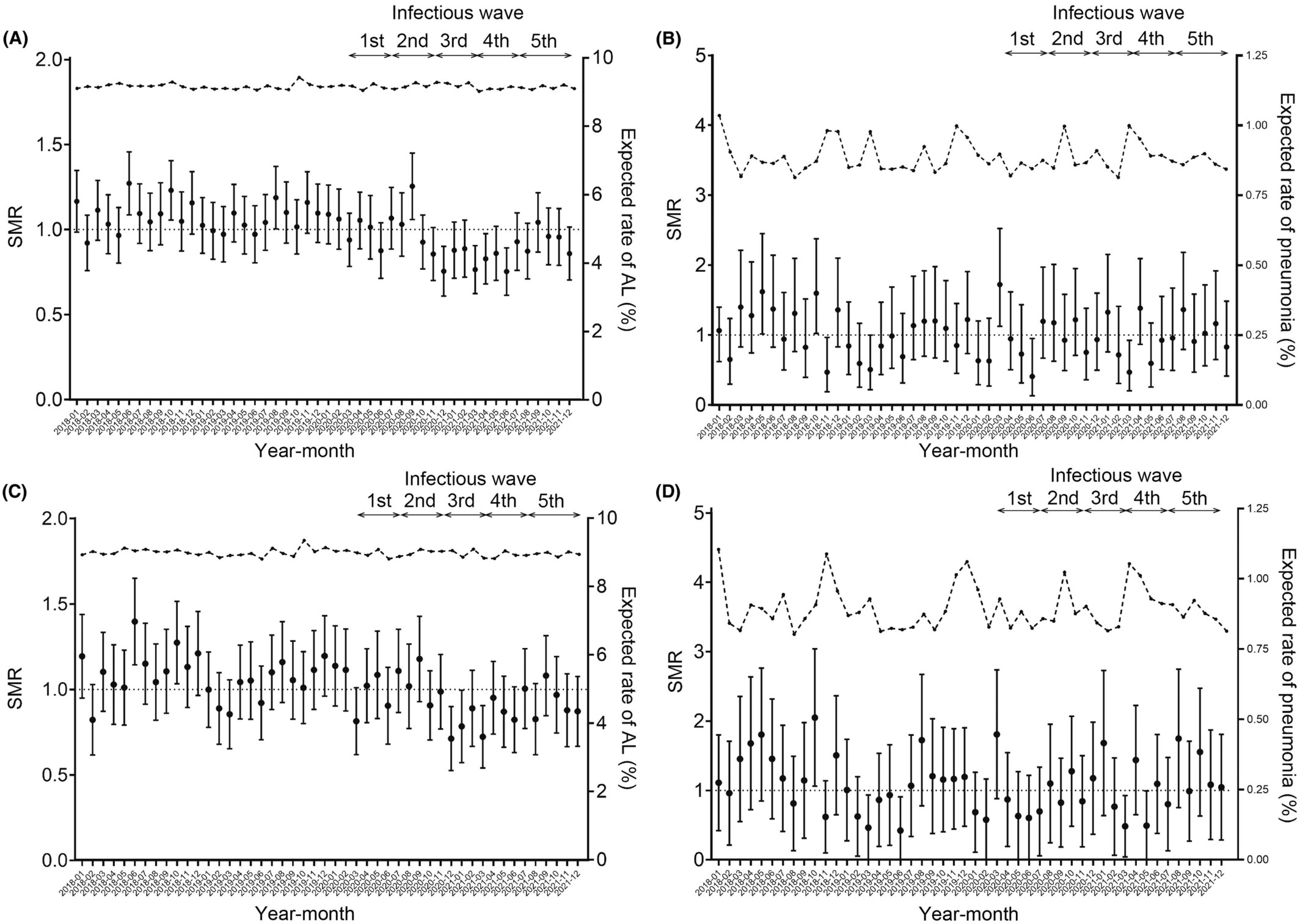
The impact of the COVID-19 pandemic on short-term outcomes following rectal cancer surgery was minimal in Japan despite a temporary decrease in the ICU admission rate. This is the first study examining the impact of COVID-19 on postoperative complications following rectal cancer surgery using national big data from Japan.
Low anterior resection syndrome: Incidence and association with quality of life
- Pages: 114-123
- First Published: 02 August 2023
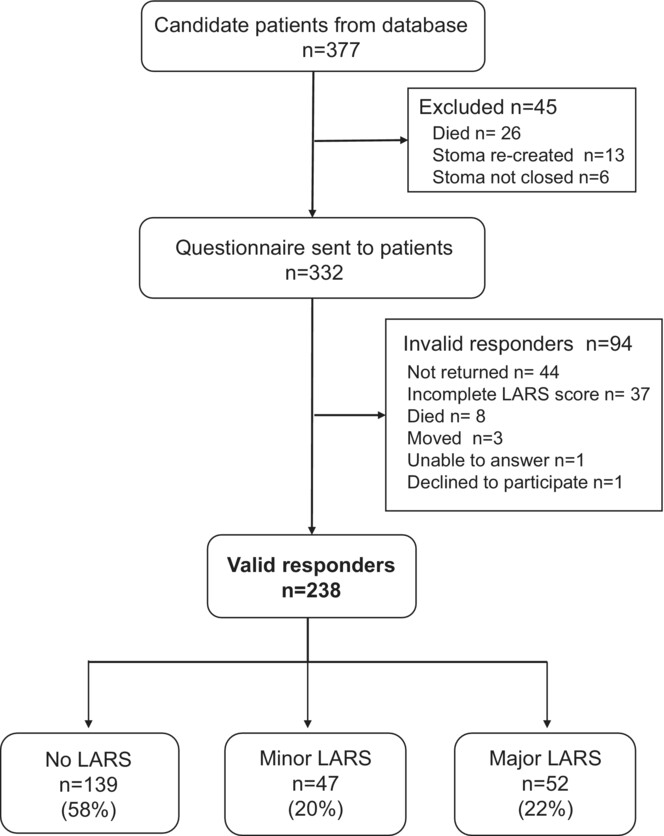
This cross-sectional survey study has investigated the incidence and risk factors of low anterior resection syndrome (LARS) as well as evaluated its association with QOL in Japanese patients. The incidence of major LARS is 22%, and independent risk factors include lower tumors and surgical procedures with lower anastomoses. More severe LARS is associated with worse QOL which is significantly more impaired in patients with lower tumors.
Evaluating staging laparoscopy indications for pancreatic cancer based on resectability classification and treatment strategies for patients with positive peritoneal washing cytology
- Pages: 124-132
- First Published: 18 July 2023
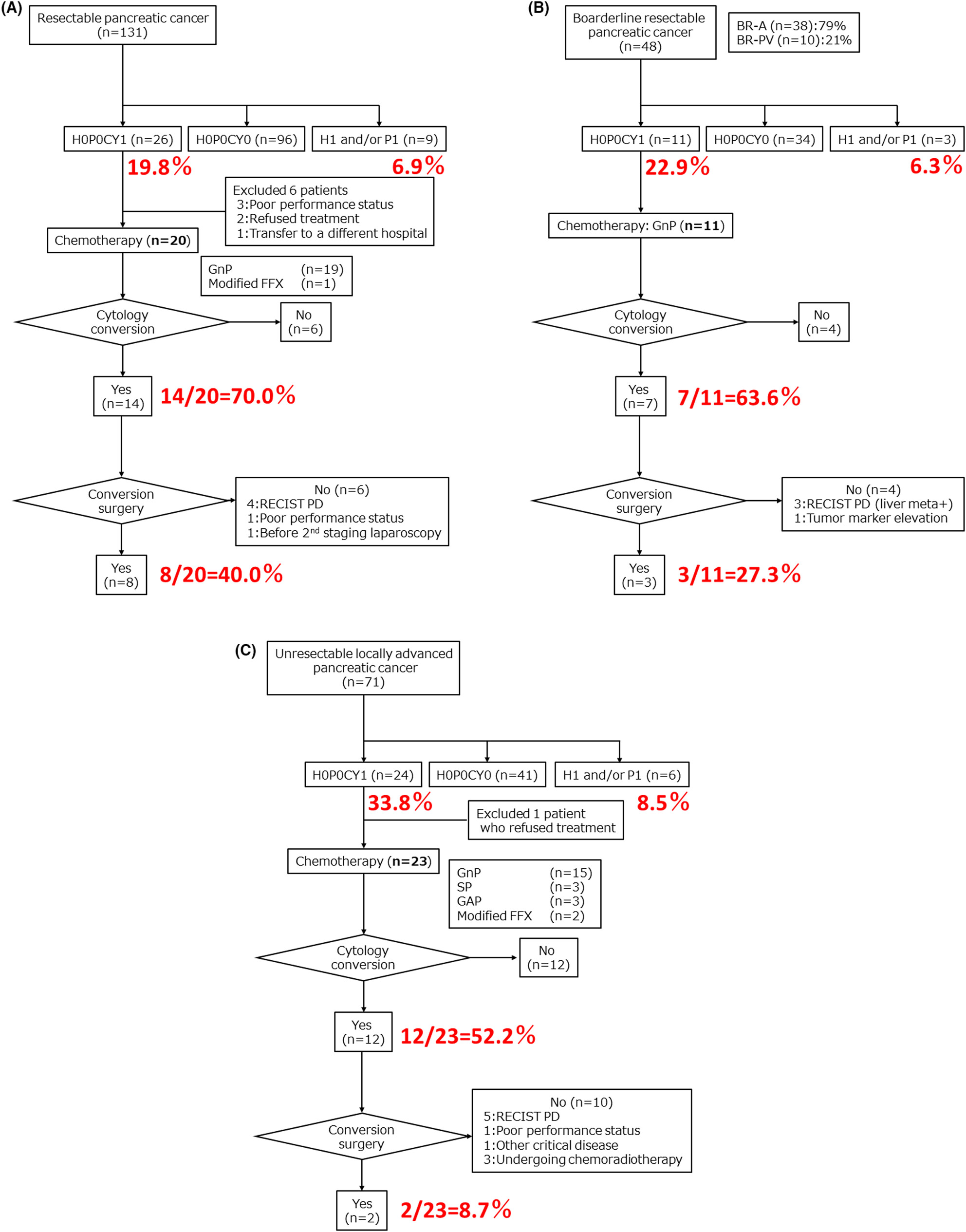
The CY-positive rates, CY-negative conversion rates, and conversion surgery rates varied according to local progression. In the case of R and BR-PDAC, staging laparoscopy could be considered in patients with pancreatic body or tail carcinoma, large tumor size, or high DUPAN-2 level. In UR-LA, staging laparoscopy might be considered for all patients.
Trends in long-term outcomes of patients with HCV-associated hepatocellular carcinoma after hepatectomy: A comparison before and after introduction of direct-acting antivirus therapy
- Pages: 133-142
- First Published: 07 August 2023
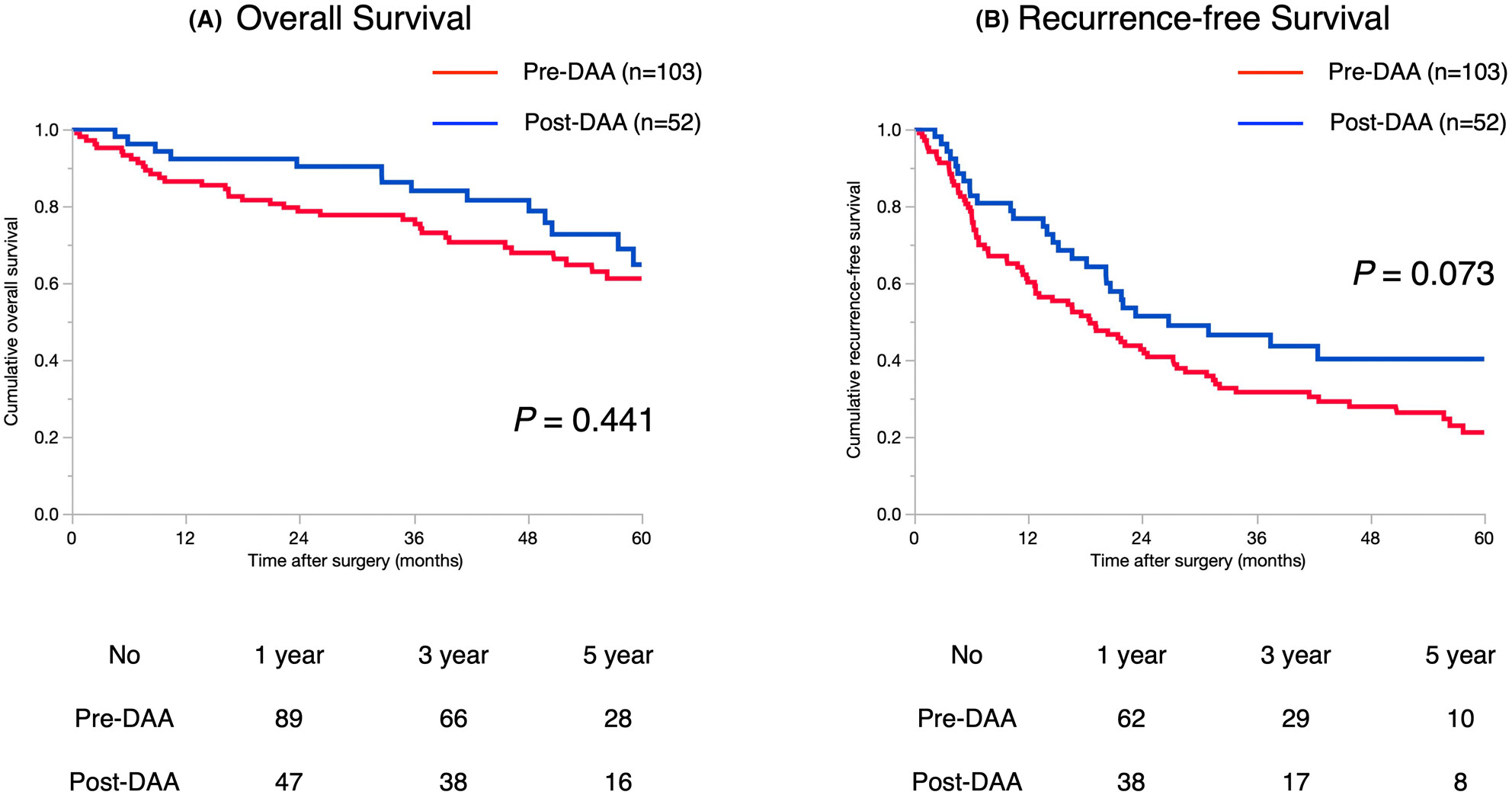
This study investigated the trends in survival outcomes of patients with HCV-associated HCC who underwent hepatectomy before and after the introduction of DAA therapy at a tertiary referral center for hepatobiliary surgery. We found that survival outcomes were not changed before and after introduction of DAA therapy. Although some papers emphasize the “oncologic” benefit of DAA therapy, its effect was skeptical based on this study.
A novel combined C-reactive protein-albumin ratio and modified albumin-bilirubin score can predict long-term outcomes in patients with hepatocellular carcinoma after hepatic resection
- Pages: 143-150
- First Published: 10 August 2023
Total neoadjuvant therapy improves survival of patients with borderline resectable pancreatic cancer with arterial involvement
- Pages: 151-162
- First Published: 10 August 2023
Clinical significance of mechanistic target of rapamycin expression in vessels that encapsulate tumor cluster-positive hepatocellular carcinoma patients who have undergone living donor liver transplantation
- Pages: 163-171
- First Published: 28 August 2023
Development of predictive score for postoperative dysphagia after emergency abdominal surgery in patients of advanced age
- Pages: 172-181
- First Published: 15 July 2023
This retrospective study included 267 patients of advanced age and was performed to identify predictive factors of dysphagia after emergency abdominal surgery and to explore the usefulness of swallowing screening tools. This study demonstrated that high intramuscular adipose tissue content, postoperative ventilator management, cerebrovascular disorder, and dementia were associated with postoperative dysphagia after emergency abdominal surgery in patients of advanced age. For patients at high risk as identified by our new prediction score that was created based on these risk factors, propensity score-matching analysis showed that the use of swallowing screening tools can help to prevent postoperative dysphagia.




